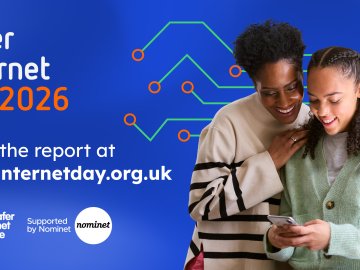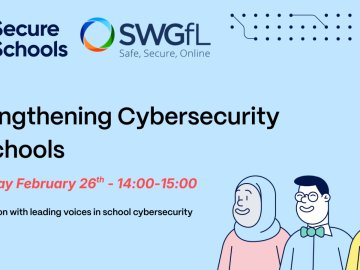For episode 10 of our Interface Podcast, SWGfL internet safety consultant Gareth Cort and co-host Ailish Hunter welcomed Andy Phippen as their guest. Andy is a professor of digital rights at Bournemouth University, and his research looks at how technology affects young people’s lives. Many of our audience will also know of Andy’s work through the research that he has conducted for us.
Throughout the podcast, it was highlighted that the topic of pornography is considered to be an important conversation for young people to have. The presenters discuss the difficulty of addressing pornography with young people, and the ways to address the subject in an appropriate setting that encourages healthy conversation.
Pornography and Relationships
One of the key themes throughout the podcast is how to address young people’s understanding of relationships and body image in pornography. As Gareth states, it is essential to build young people’s digital literacy skills so that they can distinguish between factual and fictional relationships.
Throughout the conversation, Ailish and Andy suggest how important it is to break down the narrative that porn is real, and that schools need to support young people with their concerns around pornography to help them develop critical thinking skills.
Defining the Laws
Andy makes it clear that it is essential to have educational conversations about porn with students, as laws and legislation won’t necessarily work to prevent young people from viewing pornography.
The presenters discuss how common misconceptions – over whether it is illegal for young people to watch pornography – are stopping educational conversations around the subject. They highlight how essential it is for both professionals and young people to be educated in the laws regarding pornography, to create a space where young people can be fully informed without feeling ashamed.
Discussing Pornography with Young People
The presenters then go on to discuss the challenges of addressing pornography in schools, and how important it is to encourage continuous conversation, with appropriate training and support from senior management, that is tailored to each key stage.
They also emphasise the importance of making sure young people are aware of the resources and support available to them, to make sure anyone who may be affected by online sexual content and other forms of harms, such as intimate image abuse, feels comfortable whilst accessing support services.
For more information on how to educate young people about pornography, you can access the Let’s Talk About Porn resource, which helps to start conversations around pornography with a carefully developed lesson plan.
The Future and the Online Safety Bill
Finally, the presenters address the possible impact of the Online Safety Bill, which aims to introduce age verification on adult websites. Andy states that currently, like previous age verification legislation, it will have minimal impact on young people’s consumption of porn due to the various ways to circumvent the process.
Instead, he highlights that the multistakeholder approach is the best approach to safeguarding, and ensures that young people and educational professionals get their information from appropriate sources.
Advice and Resources
To help develop your school curriculum with online safety in mind, teachers can access ProjectEVOLVE, which supports the development of digital literacy skills and critical thinking online.
SWGfL also hosts a series of Harmful Sexual Behaviour resources to support professionals working with young people when responding to incidents or issues surrounding harmful sexual behaviours. Alongside these resources, a variety of training modules have also been developed to further support professionals.
Further advice can be found by contacting the Professionals Online Safety Helpline, which is open to all professionals working with children and young people who have concerns about online safety issues.
Finally, the Report Harmful Content service cites pornographic content as one of the eight harms that they can support internet users to report; discover more about this here.






